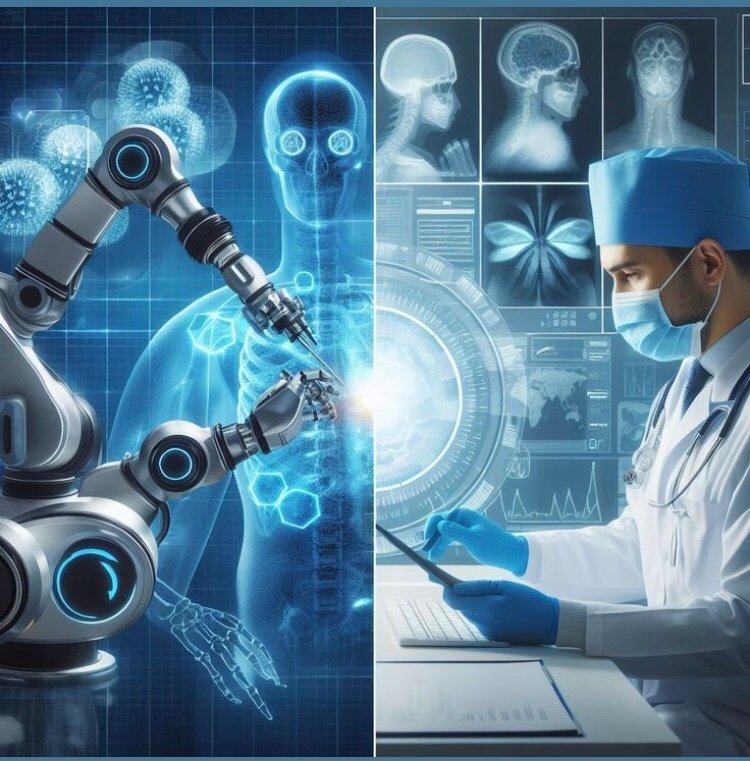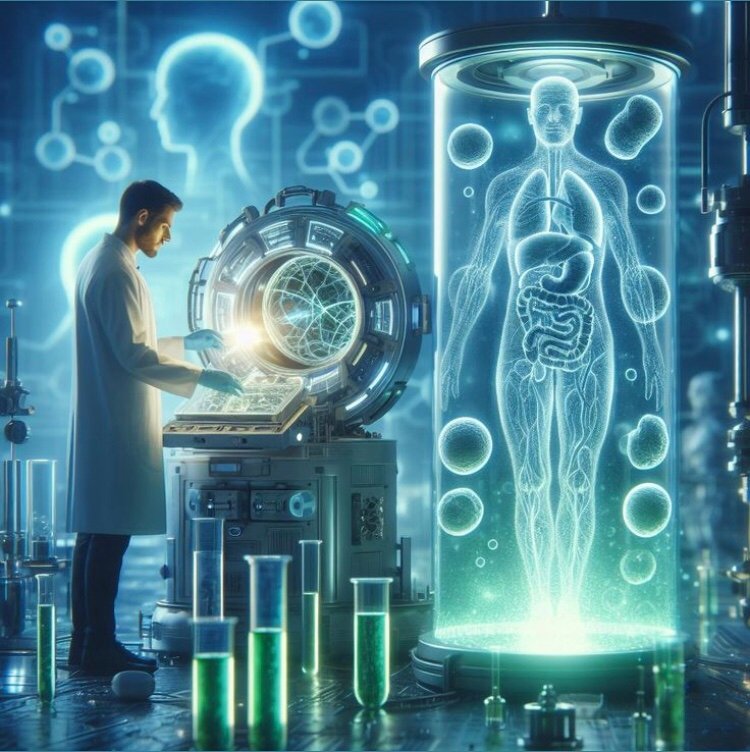The realm of medicine stands at the brink of transformation, fueled by artificial intelligence (AI). While traditional AI excels at analyzing vast datasets, a new breed—generative AI—infuses medical research and practice with creativity. Let’s delve into the groundbreaking applications of generative AI in healthcare, exploring its potential to revolutionize medicine and the exciting possibilities that lie ahead.
Unlike traditional AI that focuses on analyzing existing data, generative AI can create entirely new data, mimicking real-world patterns. This is achieved through algorithms like Generative Adversarial Networks (GANs) where two AI models compete – one generating new data, and the other trying to distinguish it from real data. Through this iterative process, the generative model refines its creations to become increasingly realistic.

Transforming Medical Practice:
Medical Imaging Analysis: Generative AI produces synthetic medical images, aiding in the development of new image analysis algorithms while addressing privacy concerns.
Drug Discovery: By creating new molecules with desired properties, generative AI accelerates drug discovery, leading to more effective therapies.
Personalized Medicine: Analyzing a patient’s genetic makeup and lifestyle, generative AI crafts personalized treatment plans and simulates potential treatment effects.
Patient Education: Realistic simulations of medical procedures help patients understand their conditions, and personalized chatbots provide ongoing support.

The Road Ahead:
The use of generative AI in medicine is still nascent, but its potential is vast. Here are some exciting possibilities on the horizon:
Generative AI-powered prosthetics: Imagine AI creating customized prosthetics that perfectly match a patient’s anatomy, maximizing functionality and comfort.
AI-driven drug design: Generative models could design drugs with minimal side effects, targeting specific disease pathways with laser focus.
Personalized disease prevention: AI could analyze a person’s genetic makeup and lifestyle to predict their risk for certain diseases, allowing for preventive measures to be taken proactively.
Challenges and Considerations:
As with any powerful technology, generative AI in medicine comes with challenges:
Data Bias: AI models are only as good as the data they are trained on. Biases in training data can lead to biased AI outputs, potentially exacerbating existing health disparities.
Explainability: Understanding how generative AI models arrive at their conclusions is crucial for building trust in their recommendations. Ensuring transparency and explainability in AI decision-making will be vital.
Regulatory Landscape: The use of AI in medicine requires careful consideration of ethical and regulatory issues. Clear guidelines are needed to ensure patient safety and data privacy.
Generative AI is set to revolutionize medicine by fostering creativity and personalization. Addressing challenges and developing responsibly can usher in a new era of precise, efficient, and empowering healthcare. With ongoing research and collaboration, the possibilities are limitless.






You must be logged in to post a comment.